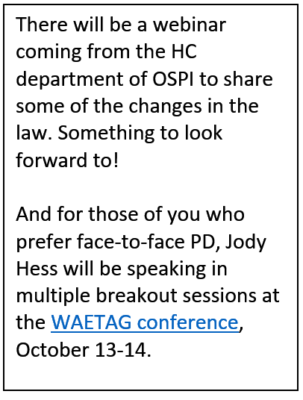 My first year in education, I worked as a Paraeducator in a Designed Instruction classroom. At the time, I didn’t know how deeply that experience would impact my practice as a classroom teacher. I spent one year in that DI classroom. In that time, I instructed students one-to-one on reading and life-skills, and also worked with the whole class to build a boat, to learn independent living through grocery shopping and cooking, and also coached the Special Olympics basketball team. These were amazing experiences and sparked my initial interest in becoming a certified teacher, but the most important impact came from how the lead teacher worked with our team. I didn’t know how much his actions affected me until I took a position in which I worked in concert with others and realized how much I had learned from him.
My first year in education, I worked as a Paraeducator in a Designed Instruction classroom. At the time, I didn’t know how deeply that experience would impact my practice as a classroom teacher. I spent one year in that DI classroom. In that time, I instructed students one-to-one on reading and life-skills, and also worked with the whole class to build a boat, to learn independent living through grocery shopping and cooking, and also coached the Special Olympics basketball team. These were amazing experiences and sparked my initial interest in becoming a certified teacher, but the most important impact came from how the lead teacher worked with our team. I didn’t know how much his actions affected me until I took a position in which I worked in concert with others and realized how much I had learned from him.
Most of us have heard the phrase “it takes a village to raise a child.” The same can be said in education. Student success does not happen as the result of one educator’s effort, there is a whole team involved. The way that team works together can make or break a classroom. Thinking back to that first lead teacher I worked with, I learned so much. The most important lesson he taught me, he did not expressly say, but rather he showed me through his interactions with the educational support staff in our classroom and through the respect he showed in both word and action.
As a team we had weekly meetings in which the lead teacher would specifically elicit feedback and suggestions from the entire staff in the classroom as to next steps, what worked and what didn’t work during the week and how we, as a team, could better meet the needs of the students. He recognized that we, as Paraeducators, were the ones working most closely with the kids. We had knowledge of their progress and interests that he did not have, because he mainly taught whole group, while we worked beside the students. He also greatly respected and worked toward each of our strengths, encouraging us to take on roles in the classroom that would have the most benefit to our students and also help us grow in our work. He created an environment in which we all felt empowered and encouraged to work independently and collaboratively. We felt safe and respected and, thus, also treated one another with respect and kindness.
It has only been in the last seven years that these lessons have really come into focus for me. Not only do I work in a team with sign language interpreters and a bilingual specialist, I also act as an advocate through our local education association for my co-workers throughout the district. Most often, when my colleagues come to me for something related to the association, it deals with interpersonal issues with their co-workers and their working environment. Many are Paraeducators, who feel disrespected by the lead teachers with whom they work and consider their environment to be hostile.
Recently, as a board member, I met with the Paraeducator Board to develop Paraeducator Standards and discuss alternative routes to certification. Inevitably our focus always falls on the element of our work that relates to the creation and implementation of training for administrators and teachers on working with Paraeducators. This is a massive element currently missing from teacher preparation programs. Teachers are expected to work with Paraeducators and other support staff, but are given little to no guidance on what that work looks like or how that sounds in a classroom. Plus, lead teachers are often given mixed messages from supervisors as to their role in reference to Paraeducators. In most cases, the teacher’s job is to guide instruction in the classroom and ensure everyone understands their roles and responsibilities in working with students and within the general structure of the classroom. Often, however, Administrators rely on teachers to provide supervision, which is not a lead teacher’s role. This can create a heirarchy in the classroom, which empowers the lead teacher, but makes the other staff in the room feel they do not have a voice and are not respected.
As I work with the board to plan training, and I also work with my co-workers to help them find resolution, I remember the lead teacher I worked with when I was a Paraeducator. His actions were simple. He created an environment in which every staff member felt ownership. He did this by using inclusive language. There was no such thing as “mine” only “ours.” It was our classroom. The students were our students. Second, he didn’t assign us roles. He directed us toward positions and responsibilities which best matched our skills and took into account our opinions about what we liked and wanted to do. We had four Paraeducators working in that DI room. Some of us worked exclusively one-to-one with particular students, others of us floated around. He also capitalized on our individual training. That’s how I became the basketball coach. I had played in college. Even though he loved coaching the team, he recognized that I might have some skills in this area that would better benefit the kids on the team, and so offered the position to me. That lead teacher had the ability to see the students and their needs first. He did not wield power, but instead shared responsibility.
I have carried these lessons with me throughout my 19 years in the classroom. Even with years of practice, I still have to be cognizant because it’s so easy to fall into language patterns and roles which diminish my classroom partners. When we work as a team, collaborate, capitalize on one another’s strengths, and empower one another, we create the best environment for our students.
What about in your schools? How do you, as an Education Support Professional or Lead Teacher, navigate roles and responsibilities in the classroom? Let’s start a conversation.
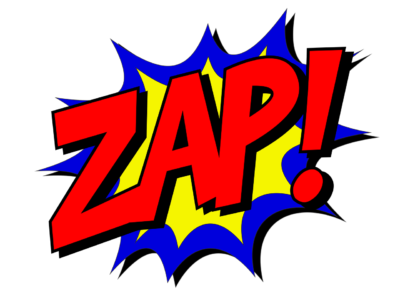
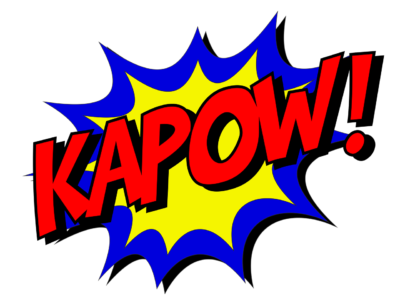



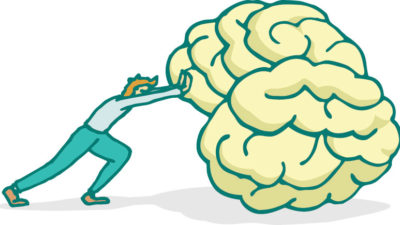
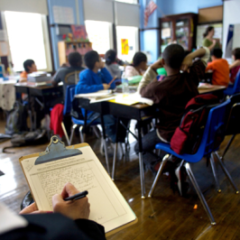
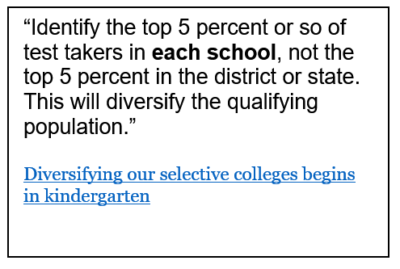 Other information we have is
Other information we have is 